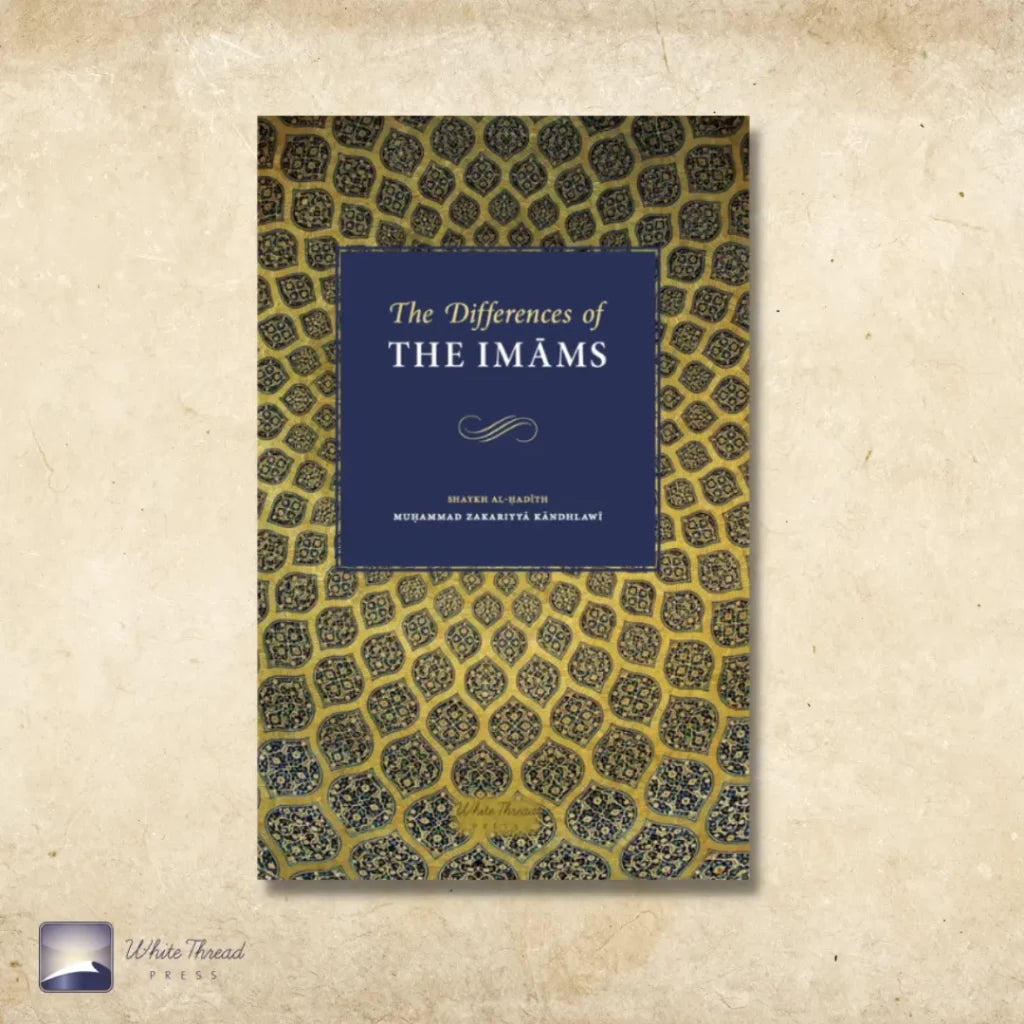Detailed Description
If the Imams of the four schools (madhahib) established all of their rulings from the Qur'an and the Sunna, why have they differed on so many points? How can two authentic narrations from the Messenger of Allah (Allah bless him and give him peace) appear to contradict one another? When is it acceptable for Muslims to differ over religious matters? What did the Messenger (Allah bless him and give him peace) mean when he said, 'The differences of my Ummah are a source of mercy?'
Using examples from the Messenger of Allah (Allah bless him and give him peace), his Companions, and their Followers, The Differences of the Imams answers these puzzling questions in a thorough and concise manner. In a clear and lucid style, the author illustrates the various ways in which different narrations seem to contradict one another and how the Companions and the Imams of jurisprudence have reconciled these apparent differences. This work is an excellent resource for anyone seeking to better understand some of the deeper issues of hadith and jurisprudence: how these two disciplines come together to form the basis of Islamic law [Shari'a], why it is necessary to follow a school of Islamic law, and what the basic principles of hadith scholarship are.
Editorial Reviews
“Shaykh and honorable Imam; jurist and noble scholar of hadith; fragrant flower of India and Arabia; master of spiritual realities [haqiqa] and allusions [majaz]; our leader and our blessing (from Allah).”
Halab, Syria
It is evident to one who takes a look at his works that he had a brilliancy, both in knowledge and with the pen, like that of Ibn al-Jawzi and Imam Ghazali. Of the scholars of his era, I know of no one comparable to him in this regard, except Imam ‘Abd al-Hayy al-Farangi Mahalli (of Lucknow).
Aligarh, India
Morally outstanding, hadith scholar, remnant of the predecessors and splendor of the successors, blessed Imam, caller to Allah, my master and my teacher: Shaykh Muhammad Zakariyya.
Madina Munawwara
Shaykh and honorable Imam; jurist and noble scholar of hadith; fragrant flower of India and Arabia; master of spiritual realities [haqiqa] and allusions [majaz]; our leader and our blessing (from Allah).
Halab, Syria


 Download Book Preview
Download Book Preview
